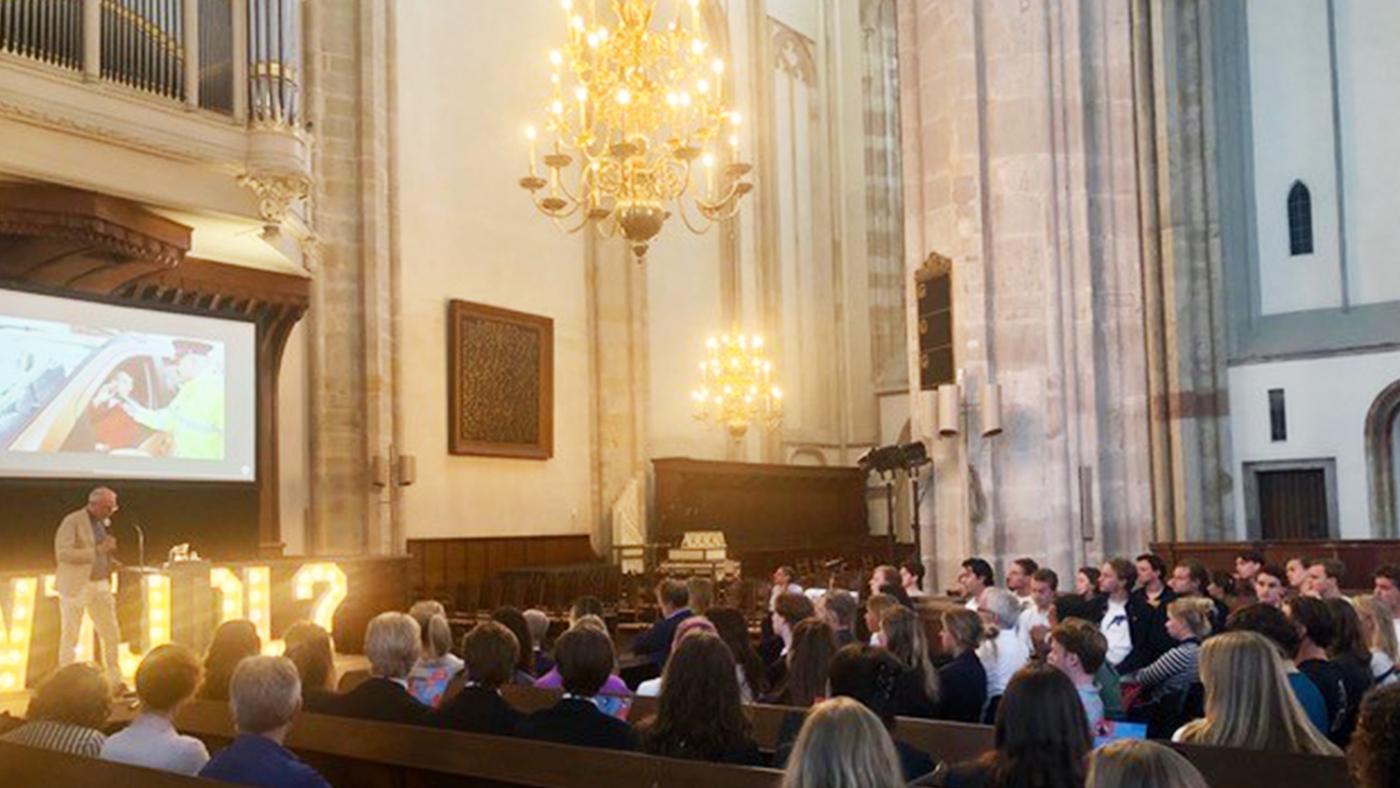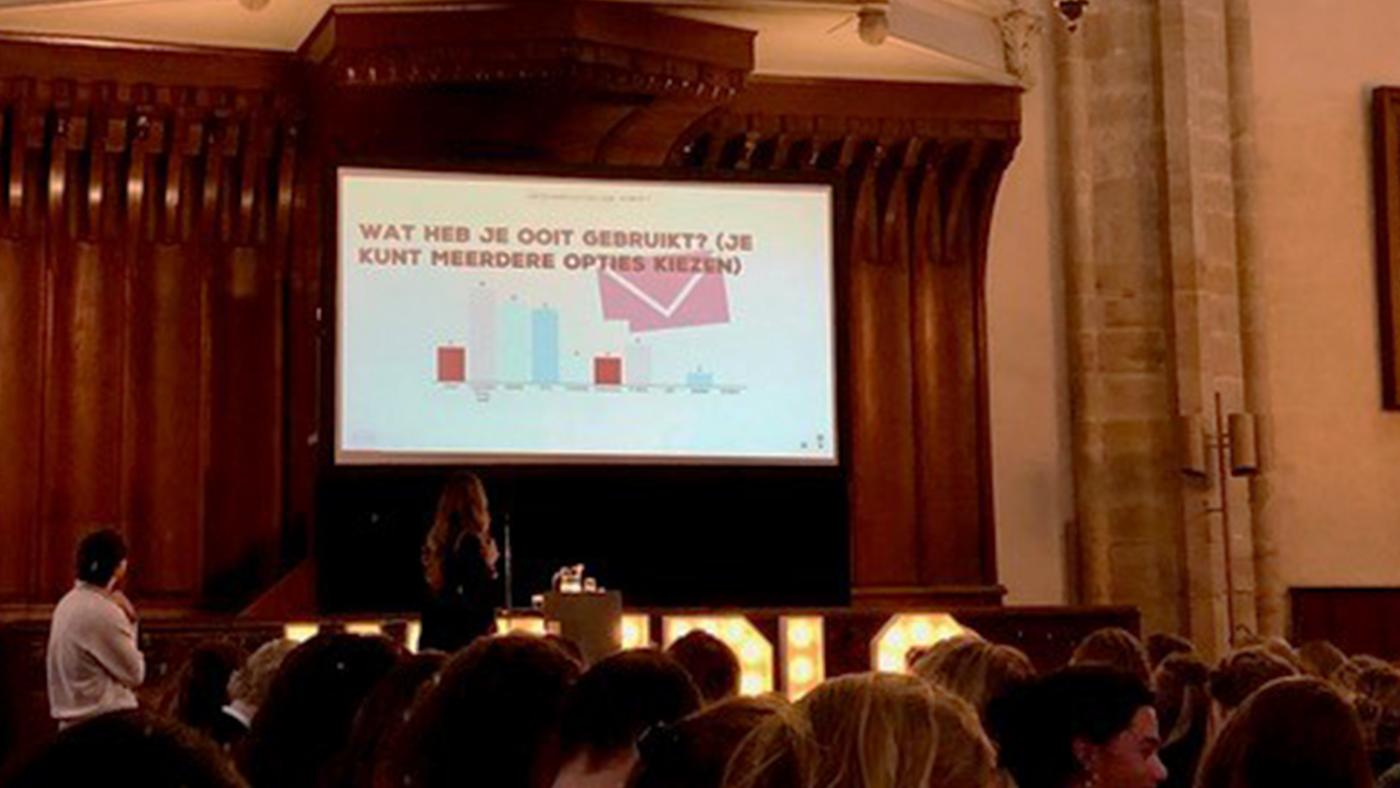Many students abusing drugs
Worried about your friends' drug use? You're not the only one!

The non-profit Waar Trek Jij De Lijn (Where Do You Draw The Line, Ed.) organised the conference to raise awareness of the consequences that may lie ahead when students use drugs. These consequences can be of a social, medical or personal nature. Despite the holiday, about three hundred students belonging to various student associations were there. "This is a hot topic among students, especially within student associations," said one of the students in the conference. Despite the reverberant acoustics of the church, which might have inspired speakers to speak slowly, they provided tons of valuable information.
According to the organisers, the problem is not just that drug use has increased, it's also normalised. A study by Public Health & Healthcare shows that 7 percent of students used cocaine in 2023, while 8 percent used psychedelic drugs and 14 percent used XTC. "Saying yes is the norm, saying no is the exception," ponders Maarten van Ooijen, State Secretary for Health, Welfare & Sport, a UU graduate, in the video that opened the event. He mentioned peer pressure as an important reason for the increase and called on the students to think long and hard about why they are using drugs. The other speakers emphasised the same and let them know that they were not there to preach or judge them.
Worried about friends and classmates
During the event, students were asked several questions, which they could answer through Mentimeter. The answers revealed that many students have already used drugs at least once even though they didn't want to do that. Of those, eighteen used hard drugs out of peer pressure. Most students also say that there should be less pressure to use both soft and hard drugs, with alcohol mentioned as the biggest problem. It looks like students in Utrecht are under considerable peer pressure to use drugs, confirming Van Ooijen's statements.
In addition, the answers showed that many students worry about how other students use alcohol and drugs and they don't know what to do about those feelings. How can you offer to help someone when they don't see their drug use as a problem? Janna Nieuwenhuizen knows this from experience. She shared her personal story, explaining that addiction can go unnoticed. She recommended the rehab clinic Jellinek, where she got treated, and emphasised there is a fine line between recreative use and problematic use.
According to Jellinek's website, examples of problematic use include using drugs to "talk to others more easily when going out" or "forget one's problems". Many students have a hard time telling recreative use and dependency apart, especially considering how normalised drug use is among this demographic.

"Coke in your nose, blood in your hands"
"I'm going to point fingers here." That's how prosecutor Bart Nitrauw started his speech. "If you use cocaine, I think you're a huge a**hole." Nitrauw didn't focus on the consequences of drug use for the students as individuals, but rather consequences for society, from South America to the Netherlands. The drug circuit kills so many people that those who choose to use cocaine are complicit, argues Nitrauw. He gave a behind-the-scenes peek into cocaine production around the world. His conclusion: stop using cocaine, otherwise you've got blood in your hands. He got an enthusiastic applause.
However, even in this setting – an event to discourage people from using drugs – there was still an underlying vibe that using them is a bit cool. When the speakers talked about their own use, they used sentences like "Yeah, I used to be a student too" and the audience laughed. When Nitrauw told them how much a kilogram of cocaine is worth, everyone laughed when someone in the audience asked if it was "cut or uncut". Even Nitrauw himself laughed.
Where Do You Draw The Line?
The foundation was founded by UVSV members due to the increased use of hard drugs among students. Founders Valerie Lhoëst and Charlotte Stikkelbroeck were concerned about the increase, especially during the pandemic and in its aftermath. Using hard drugs used to be an exception, but now it's becoming more and more common.
The first symposium was held in May 2022. They also created a podcast series (in Dutch, Ed.) where they talked to experts in addiction and people who have been addicted to drugs themselves. Since then, student associations from several cities have organised similar symposiums in collaboration with the foundation.
The conference on May 9 was the third one held in Utrecht. The foundation's goal is still the same: breaking the taboo of talking about the underlying reasons for substance use. Although the founders denounced drug use due to the pandemic, this edition of the conference focused on peer pressure and group formation. The main takeaway was that students should be aware of why they use drugs and talk about it.